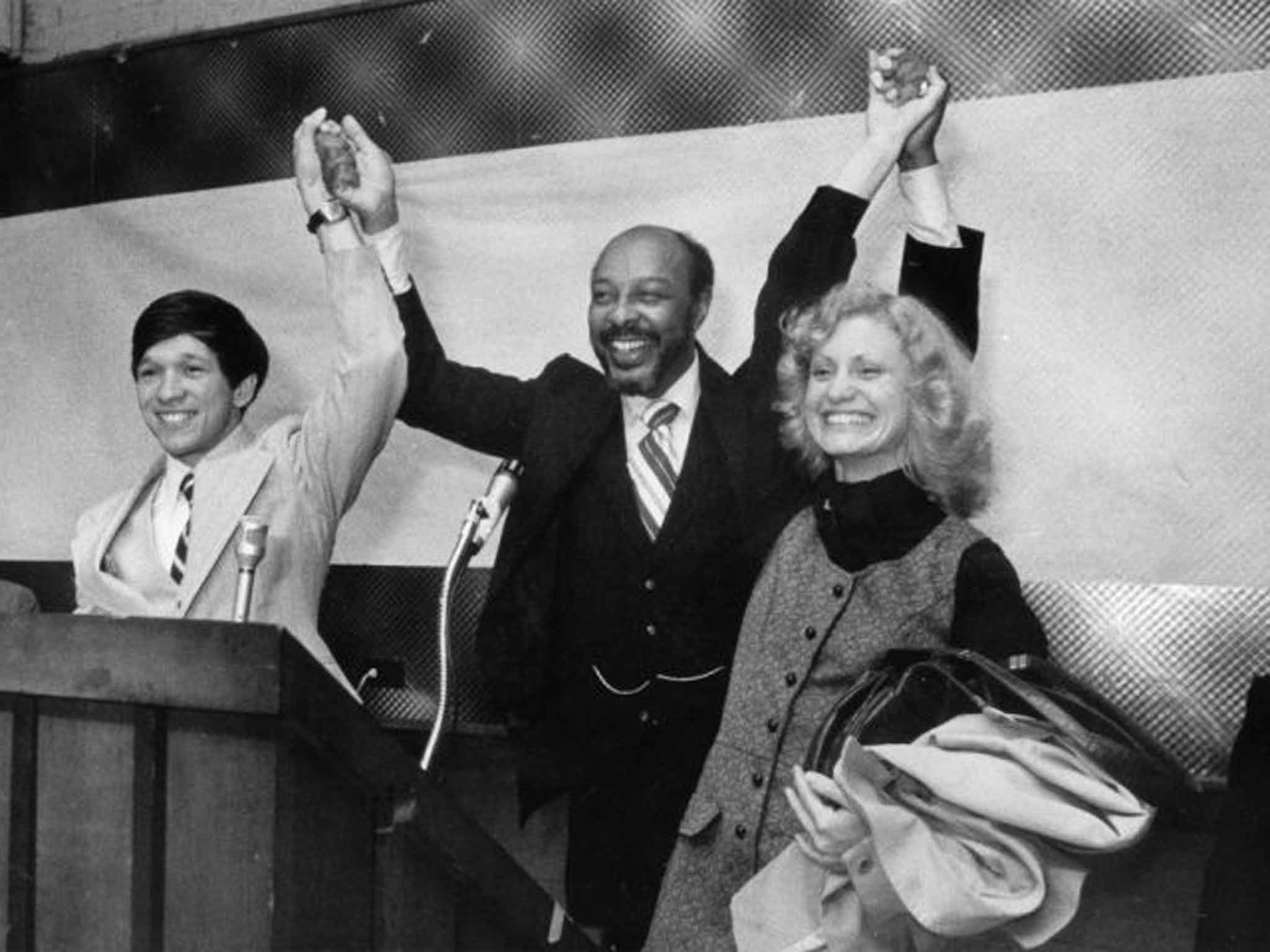Louis Stokes: US Congressman who led inquiries into the murders of John F Kennedy and Dr Martin Luther King Jnr
His public demeanour was patient and analytical, but colleagues also knew him as tough, principled and skilful.

Over the course of 15 terms as a US congressman, Louis Stokes took on tough assignments, looking into assassinations and scandals. He was elected to the House in 1968 as Ohio's first black member of Congress and became one of its most respected and influential. A year earlier, his brother, Carl, had become mayor of Cleveland, the first elected black mayor of a major US city.
Stokes headed the House's Select Committee on Assassinations that investigated the murders of President John F Kennedy and Dr Martin Luther King Jnr in the late 1970s and concluded that in both cases, there "probably" had been a conspiracy. Later, he served on the Iran-Contra investigative committee, where he drew attention with his unflinching interrogation of Lt Col Oliver North.
Stokes was one of the Cold War-era chairmen of the House Intelligence Committee, headed the Congressional Black Caucus and was the first black person on the House Appropriations Committee. His public demeanour was patient and analytical, but colleagues also knew him as tough, principled and skilful.
He was one of only nine blacks in the 435-member House when he took the oath of office in 1969 and never forgot his roots as the child of poverty and great-grandson of a slave. He served in the Army from 1943 to 1946 in a segregated unit where he said he experienced racism for the first time in his life.
Stationed in Mississippi, he and other blacks were sentenced to the guard house for refusing to pick up papers around the white soldiers' barracks, and once confined, found there were separate toilets for white and black soldiers.
His struggles with racism lasted a lifetime. In 1991, a police officer on Capitol Hill ignored Stokes' valid parking tag and refused to let the congressman into his own office building; he didn't believe the black man behind the wheel was a member of Congress.
In 1992, Stokes ran against Bill Clinton for the Democratic presidential nomination, winning the delegates from his home district and then, in a minor convention drama, refusing to release their votes until the Clinton campaign formally asked for them.
Louis Stokes, politician: born 23 February 1925; married (four children); died 18 August 2015.
Subscribe to Independent Premium to bookmark this article
Want to bookmark your favourite articles and stories to read or reference later? Start your Independent Premium subscription today.

Join our commenting forum
Join thought-provoking conversations, follow other Independent readers and see their replies